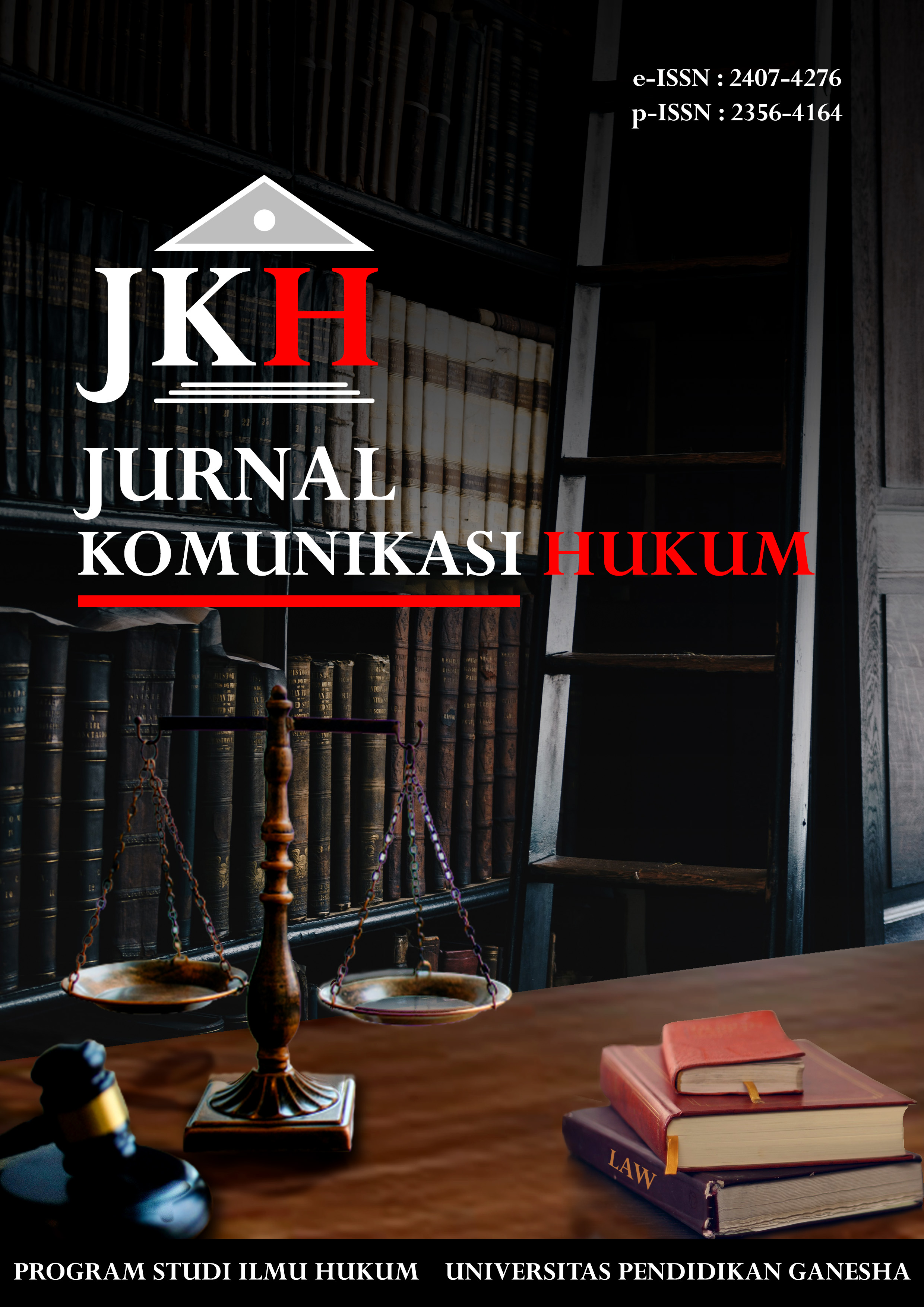Efektivitas Perekrutan Tenaga Kerja Lokal dari Perspektif Economic Analysis of Law
DOI:
https://doi.org/10.23887/jkh.v7i2.37988Abstract
Based on the Badung Regency Regional Regulation Number 8 of 2014 concerning the Implementation of Employment Services in article 11 of the perda, it states that companies provide opportunities for local workers, with the company's needs without compromising labor competency standards. The theory of effectiveness is used to dissect and analyze aspects of the benefits of local labor recruitment with the theory of Economic Analysis of Law where the data obtained are data from field research. From the description above, two problems are obtained, related to the effectiveness of the Badung Regency Regional Regulation Number 8 of 2014 on the recruitment of local workers from the perspective of the Economic Analysis of Law and the inhibiting and supporting factors of the effectiveness of the Regional Regulations. The method in this research is empirical legal research, descriptive nature with the type of real behavior approach and statutory approach. Sources of data used are primary data and secondary data, data collection techniques by observation, interviews and documentation studies. Determination of the research sample used is positive sampling. The data analysis used is qualitative analysis. The recruitment of local workers to companies in the Kerobokan Traditional Village was declared effective because each company made sure that local workers were well absorbed. However, the ineffectiveness was found because the percentage of the agreement between the Kerobokan Traditional Village and the company was that 40% of the local workforce was not fulfilled.
Downloads
Published
How to Cite
Issue
Section
License
Authors who publish with this journal agree to the following terms:- Authors retain copyright and grant the journal right of first publication with the work simultaneously licensed under a Creative Commons Attribution License that allows others to share the work with an acknowledgement of the work's authorship and initial publication in this journal.
- Authors are able to enter into separate, additional contractual arrangements for the non-exclusive distribution of the journal's published version of the work (e.g., post it to an institutional repository or publish it in a book), with an acknowledgement of its initial publication in this journal.
- Authors are permitted and encouraged to post their work online (e.g., in institutional repositories or on their website) prior to and during the submission process, as it can lead to productive exchanges, as well as earlier and greater citation of published work (See The Effect of Open Access).
Authors who publish with this journal agree to the following terms:
- Authors retain copyright and grant the journal right of first publication, with the work [SPECIFY PERIOD OF TIME] after publication simultaneously licensed under aCreative Commons Attribution License that allows others to share the work with an acknowledgement of the work's authorship and initial publication in this journal.
- Authors are able to enter into separate, additional contractual arrangements for the non-exclusive distribution of the journal's published version of the work (e.g., post it to an institutional repository or publish it in a book), with an acknowledgement of its initial publication in this journal.
- Authors are permitted and encouraged to post their work online (e.g., in institutional repositories or on their website) prior to and during the submission process, as it can lead to productive exchanges, as well as earlier and greater citation of published work (See The Effect of Open Access).












